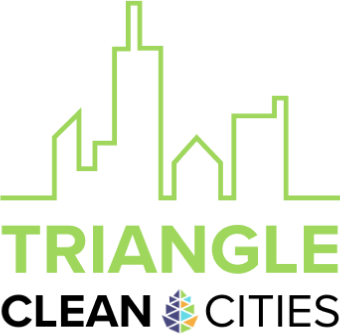General Resources
The Alternative Fuels Data Center (AFDC) features interactive tools, calculators, and mapping applications to aid in the implementation of these fuels, vehicles, and strategies. The AFDC functions as a dynamic online hub, providing information, tools, and resources for transportation decision makers seeking domestic alternatives that diversify energy sources and help businesses make wise economic choices.
- Check out national Laws and Incentives.
- Advanced Vehicle Search
- Fuel Properties Comparison
Nearly 100 local coalitions serve as the foundation of Clean Cities by working in communities across the country to implement alternative fuels, fuel-saving technologies and practices, and new mobility choices. Clean Cities coalitions are comprised of businesses, fuel providers, vehicle fleets, state and local government agencies, and community organizations.
Each coalition is led by an on-the-ground Clean Cities coordinator who tailors projects and activities to capitalize on the unique opportunities within their communities. Nationwide, nearly 16,000 stakeholders participate in Clean Cities coalitions, and through their collective efforts they are transforming local and regional transportation markets.
Fleets for the Future (F4F) is coordinating a national procurement initiative designed to consolidate bulk orders of alternative fuel vehicles (AFVs) and infrastructure for public fleets across the country. Fleets interested in participating can expect reduced incremental costs on hybrids, propane, electric, and natural gas-powered vehicles, and refueling and charging infrastructure.
Types of Alternative Fuel Vehicles Available Through F4F
- Bi- fuel Police Vehicles
- Refuse Trucks
- Shuttles, school buses
- PHEV or BEV sedans (e.g. for pooled vehicles, inspectors
- Upfits to hybridize medium & heavy-duty vehicle
- Pickup trucks
- Delivery vehicles
- Utility body trucks (e.g. F-450 and up)
F4F has partnered with Sourcewell to provide public fleet managers an opportunity to purchase and lease discounted vehicles through Sourcewell’s aggregate demand structure.
- Access Fleets For the Future
- Check out the F4F Best Practices Guide.
The Initiative for Resiliency in Energy through Vehicles (iREV), supports state and local emergency management decision makers by providing customized tools, information, and strategies about alternative fuel vehicle technologies, infrastructure, and potential uses in emergency scenarios. In preparing for large-scale disasters, an often overlooked risk is the disruption in supply of conventional fuels. Integrating AFV’s into emergency response fleets helps mitigate this risk. Learn more with the iREV FAQ 1 pager.
The iREV Tracking Tool is a mapping application that displays where alternative fuel vehicles and on-the-ground fueling infrastructure are located in your community. The tool can help develop emergency response plans and make decisions of how to best integrate AFVs into emergency response fleets.
Create an account and use the tool or watch a webinar presenting a demo of the Tracking Tool.
To get involved, enter your contact information in the form and the iREV staff will reach out within 1-5 business days to discuss available tools and resources.
- iREV will provide assistance to fleets and communities interested in incorporating alternative fuels into their emergency response planning efforts.
Fuels Fix is a collaborative effort of all the U.S DOE Clean Cities Coalitions. They work together to spread the word about actions to reduce oil dependence and advance in alternative fuels technology.
- The podcast covers solar, wind, hydropower, geothermal, bioenergy, electric vehicles, energy storage, and the whole nine yards.
- A weekly digest on energy, cleantech and the environment.
- Quick Charge is a recap podcast bringing you the latest in Tesla news and the top green energy stories every Monday through Friday.
This resource is designed for dealers, those who want to learn more about selling Electric Vehicles to potential buyers.
1. Free Training for Dealer Teams - a training sent to your email each week on the basics of EV's, selling considerations. This resource is backed by the National Science Foundation and hosted by Recurrent.
2. Dealer and Consumer Video Trainings - a bank of videos and resources created out of California
3. Blog: Tapping into North Carolina's EV Potential - writings created by the North Carolina Sustainable Energy Association
The North Carolina Clean Energy Technology Center offers on-demand courses: The Electric Vehicle Supply Equipment (EVSE) Infrastructure Series is comprised of four 1-hour courses that cover the topics of siting, working with utilities, navigating permitting, and ADA considerations relating to EVSEs. The series is intended to provide foundational information on each topic for architects, planners, and construction professionals.
Resources by Fuel Type
- Electric AFDC Page
- Plug-In Electric Readiness AFDC Page
- Plug-In NC
- Offers a variety of information regarding electric vehicles. Specific content related to the adoption of electric vehicles in North Carolina is also provided. Benefits of electric vehicles.
- Map of Local Preferred EV Dealerships
- Dealership Trainings on EV's can be found in the link above
- Vehicle Cost Calculator
- Fuel Economy Calculator
- Ethanol AFDC Page
- Biodiesel AFDC Page
- NREL Biofuel Atlas
- is an interactive map that allows users to view and compare the locations of biomass feedstocks, biofuels production facilities, bioenergy plants, biofuels stations, and densities of vehicles that can run on biodiesel
- National Biodiesel Board
- U-Michigan Biofuels 1 pager
- Provides simple explanations of Biofuels
- Propane AFDC Page
- Propane Education and Research Council
- Provides educational resources, trainings, and case studies
- Natural Gas AFDC Page
- Natural Gas Vehicle Institute
- Provides educational resources, trainings, and certifications
- Triangle Clean Cities RNG 1 pager
- Hydrogen AFDC Page
- The Hydrogen Fuel Cell Nexus
- A free and detailed business-to-business directory to help connect suppliers in the hydrogen and fuel cell industry together to advance the market for these technologies. U.S. Suppliers can add themselves to this list, and interested folks can gain contact information for the industry from this list.
- National Highway Traffic Safety Administration
- Provides an overview of autonomous vehicles including the history, safety, and future of these vehicles
- U-Michigan Fact Sheet
